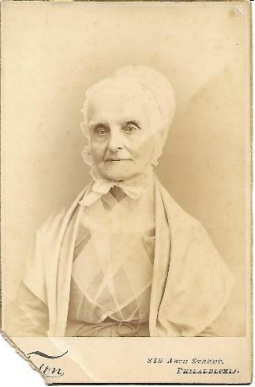Section #9 - Growing opposition to slavery triggers domestic violence and a schism in America’s churches
Chapter 111: Public Attitudes Toward Slavery Begin To Shift In The North
1840’s

An Anti-Slavery Social Founder
In the early 1840’s public opinion in the North about slavery begins to gradually shift.
The shift is not about discarding convictions that blacks are an inferior and dangerous race or supporting the Abolitionist’s demand that all slaves be immediately freed.
Instead, it is a growing sense that chattel slavery is inconsistent with the vision and values laid out by the Founding Fathers. How can a nation based on freedom for all keep some 4 million blacks in captivity?
This question surfaces for most out of their own religious reflections associated with the Second Great Awakening. It is then reinforced by a variety of perfectionist movements and high-profile events.
The 1833 founding of the American Anti-Slavery Society attracts many members who would shy away from the “too radical” Abolitionists. Public testimonials by black spokesmen like Fred Douglass heighten awareness of, and empathy toward, the plight of those enslaved. Newspaper accounts of race riots and the breakdown of law and order are frightening – and resistance hardens against bounty hunters searching private homes for runaways.
So more and more Northerners are becoming convinced that slavery is a moral stain on the nation and that something must be done about it. But the question is what?
Soon enough the search for answers turns to America’s churches who prove once again that they are not up to the task.